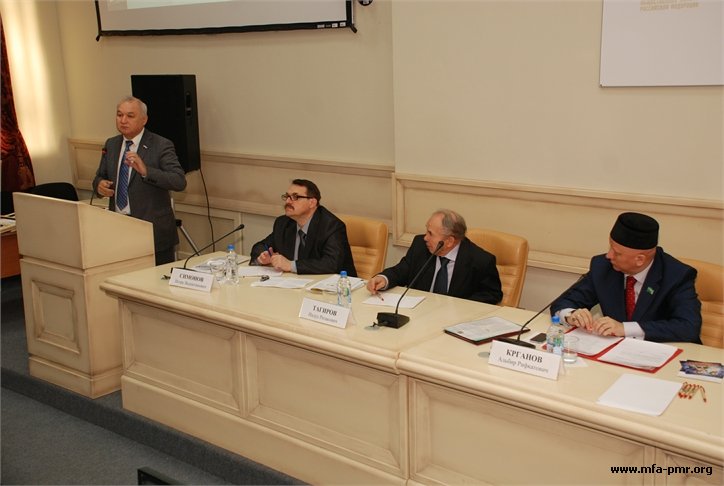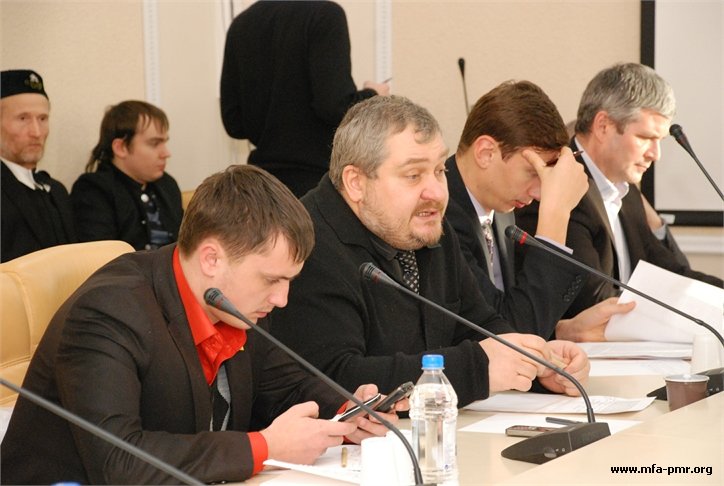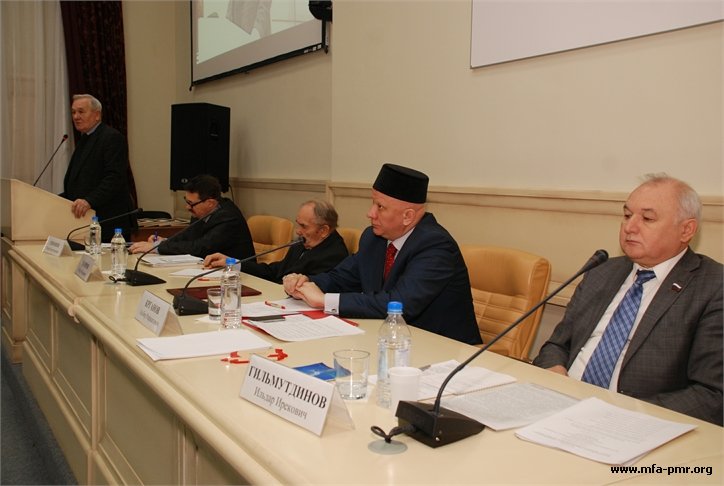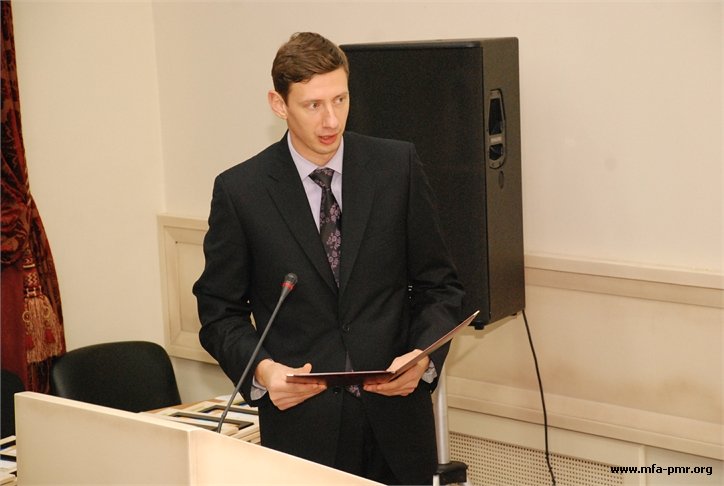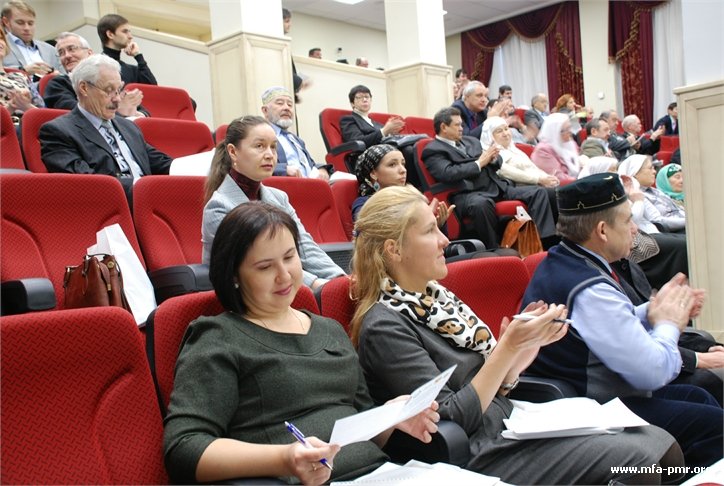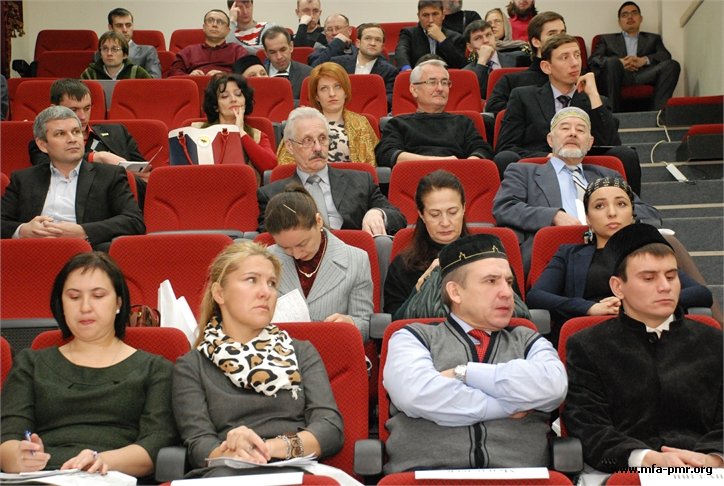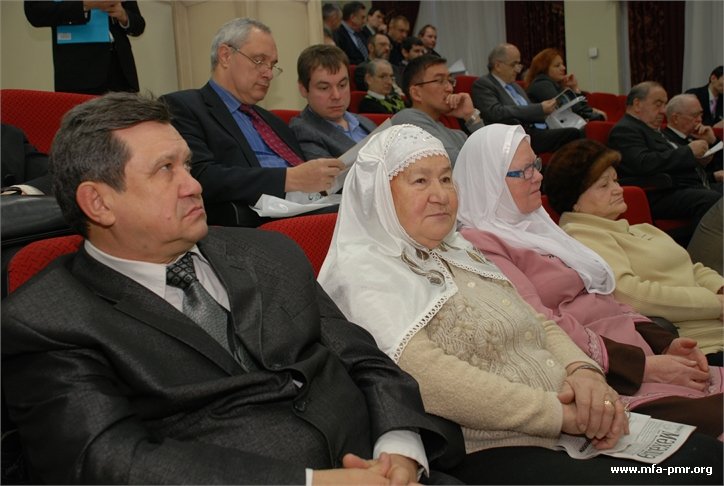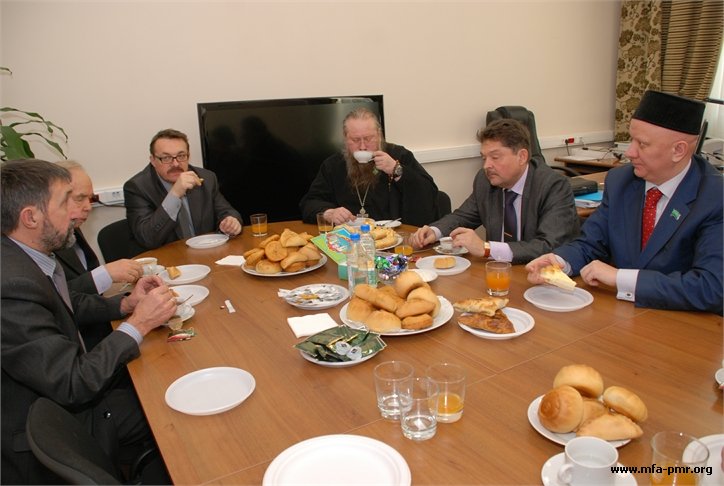“Eurasian Readings” International Conference took place on December 17 of a. c. in the Public Chamber of Russia involving public figures, scientists, representatives of national and religious institutions and authorities of the Russian Federation, Kazakhstan, Uzbekistan, Kyrgyzstan, Azerbaijan, Ukraine, Belarus, Crimea, the Pridnestrovian Moldavian Republic, South Ossetia, and Abkhazia. Discussion was arranged by the Commission on Inter-Ethnic Relations and Freedom of Thought of the Public Chamber together with the Spiritual Governance for Muslims of Moscow city and Central Region “Moskovsky Muftiat”, Moscow State Linguistic University and the Moscow Centre of Lev Gumilev. Albir Krganov, Mufti of the Spiritual Governance for Muslims of Moscow city, Pavel Zarifullin, President of the Moscow Centre of Lev Gumilev also attended at the event. Pridnestrovie was represented by Igor Shornikov, Chief of the Department for Public Communications of the Ministry of Foreign Affairs of the PMR.
The meeting discussed issues of preservation of national and religious identity of the Tatars and other peoples living in Eurasia in the era of globalization and active penetration of the non-traditional cults; there were also discussed the prospects of Eurasian integration of individual countries and macro-regions, as well as paths of formation of the Eurasian Union.
Participants of the readings noted that Russia historically possesses distinctive geopolitical position in the world. It inevitably becomes the centre of Eurasian integration being a multi-ethnic and multi-religious state. Eurasian area is surrounded by Chinese, Indian, Islamic, and European civilizations. The longer Eurasia stays disintegrated the fewer opportunities are available for Eurasia to become an independent centre of power and full participant of global processes.
According to public representatives the Russian civilization is a fusion of many cultures, but in contrast to the American civilization it is not a melting pot for languages, cultures and peoples. Many ethnic groups within this civilization could get new opportunities for their cultural and socio-economic development. Today Eurasian idea forms a new platform for interaction between states and peoples with a long tradition of coexistence and cooperation. This idea can resolve the full range of ethnic, religious, socio-economic, political and humanitarian problems that have accumulated within the area from the Baltic and the Dniester River to the Pacific Ocean.
Pridnestrovie fully supports integration initiatives of Russia, Kazakhstan, and Belarus. Nina Shtansky, the head of the Pridnestrovian diplomacy, noted in the testimonial to the participants that Pridnestrovie had always seen itself as an integral part of a civilization space united by a common history, lofty ideals and a joint development thrust. The diplomat appealed for active work towards implementation of Eurasianism concepts.
“The emerging Eurasian Union designated real prospects of breaking political deadlock that is associated with the unsettled relations with Moldova, it gave us hope that peace and stability will come to our land once for all. We also see that the Eurasian integration gives us a chance to intensify the economic development, and to strengthen the social policy of the state. Finding unity in the spiritual realm, of course, will make us all stronger,”- the message says. “That's why Eurasian integration was announced as the national idea in Pridnestrovie. This course has recently been recognized in the Foreign Policy Concept of the state and now it starts to take visible shape. Pridnestrovie intends to strive actively for participation in the Eurasian integration, but we need help and support of our friends and associates in Russia, Kazakhstan and Belarus. Temporary political conventionalism should not prevent the process of our approach in economy, culture, security and social development.”
In the course of the scientific section Igor Shornikov told about mechanisms which are developed in Tiraspol and are aimed at joining of Pridnestrovie the Eurasian integration. He emphasized that the efforts of Pridnestrovie will succeed under support rendered by the Participating States of the Customs Union. According to him the first joint steps in this direction should be taken in the field of information and media. The diplomat suggested that the Eurasian integration can be a “rescue program” for the Pridnestrovians in the face of threats in foreign policy and economics; support of Pridnestrovian aspirations can be an important factor while strengthening their own security and enhancing regional integration for Russia and other states of the Customs Union.
Participants of the Eurasian Readings also discussed the prospects of integration in the countries of Transcaucasian region and Central Asia, and considered the features of the internal political processes in the Crimea. Other important issues were also raised.
The resolution of the Conference is prepared at presence.
On December 19 forum moderators held video briefing regarding the results of the Eurasian Readings.

